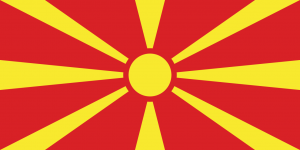Difference between revisions of "Language/Macedonian/Grammar/Pronouns"
< Language | Macedonian | Grammar
Jump to navigation
Jump to search
| Line 10: | Line 10: | ||
Happy learning! | Happy learning! | ||
__TOC__ | __TOC__ | ||
==Macedonian Personal Pronouns== | |||
➡ In English personal pronouns are (I, you, he, she, it, we, you, they), and (me, you, him, her, it, us, you, them). | ➡ In English personal pronouns are (I, you, he, she, it, we, you, they), and (me, you, him, her, it, us, you, them). | ||
| Line 23: | Line 25: | ||
* тие… (they) | * тие… (they) | ||
== Examples== | === Examples=== | ||
* јас учам (I learn), | * јас учам (I learn), | ||
* ти учиш (you learn), | * ти учиш (you learn), | ||
Revision as of 00:07, 25 December 2021
Grammar Lesson: How to use Pronouns in Macedonian
Hi Macedonian Learners! 😃
In today's lesson we will learn How to use Pronouns in Macedonian.
Happy learning!
Macedonian Personal Pronouns
➡ In English personal pronouns are (I, you, he, she, it, we, you, they), and (me, you, him, her, it, us, you, them).
➡ In Macedonian, the personal pronouns are:
- Јас… (I),
- ти… (you),
- тој… (he),
- таа… (she),
- тoa… (it)
- Ние… (we),
- вие… (you),
- тие… (they)
Examples
- јас учам (I learn),
- ти учиш (you learn),
- тој учи (he learns),
- таа учи (she learns),
- Вие учите (you learn [polite]),
- ние учиме (we learn),
- вие учите (you learn [plural, friendly]),
- тие учат (they learn),
- Вие учите (you learn [plural, polite]).
Indirect Object Pronouns
Indirect object pronouns are words that replace the indirect object, which is usually a person. In the Macedonian language, there are long and short forms (used in direct and indirect speech as well)
- мене ме (me),
- тебе те (you),
- него го (him),
- неа ја (her),
- него го (it),
- нас нè (us),
- вас ве (you),
- ним им (them)
Examples
- Дај ми ја книгата (give me the book).
- Јас те сакам тебе(I love you).
Possessive Pronouns
The possessive pronoun depends on the noun. If the noun is masculine gender, the possessive pronoun must be of masculine gender.
The same goes for feminine and neuter gender nouns, as well as for the plural.
Examples
| SINGULAR | PLURAL | |||
|---|---|---|---|---|
| Masculine gender | Feminine gender | Neuter gender | Plural gender | |
| my, mine | мој | моја | мое | мои |
| yours | твој | твоја | твое | твои |
| his | негов | негова | негово | негови |
| hers | нејзин | нејзини | нејзино | нејзини |
| its | негов | негова | негово | негови |
| ours | наш | наша | наше | наши |
| yours (plural) | ваш | ваша | ваше | ваши |
| theirs | нивен | нивна | нивно | нивни |
